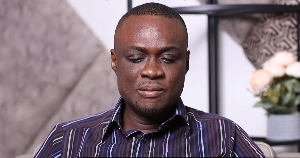Age cheating in Ghana – the bane of football academies trying to produce the next Michael Essien and Kwadwo Asamoah.
Thousands of desperate boys in Ghana are itching to land a football deal abroad, but only a handful get the chance with the few football academies available due to age cheating
Ben Clottey is a worried man. He has been hoping to enrol in a football academy for the last 10 years, but the dream remains an illusion.
He is obsessed with football. Clottey spends most of his time at the beach enjoying five-a-side games with other desperate youngsters. His mission is to be spotted by a scout to land him a move to Europe where he would achieve his childhood ambitions.
That mission is gradually becoming a hobby. Clottey has reverted to his academy aspirations, but one thing lets him down – his age. Although he has lost count of the number of trials he has been to, he knows the last test was just a month ago. It was almost a dream come true, but he is out of the age range.
Biologically, Clottey is 25, but on paper he is 17. He reduced his age drastically two weeks ago after failing on several attempts to gain admission at the academies. It cost him just €20 to obtain a new birth certificate through illegal means. He is a happy man, because he is now qualified to compete in a football reality show later in the year.
Age fraud has been the bane of football academies in Ghana and Africa in general. Such facilities, mostly blinded by a player’s talent, are handicapped in detecting the correct age of prospective students.
“The biggest challenge is age cheating,” Gareth Henderby, the technical director of Right to Dream, told Goal.com. “It is difficult for academies to get players in the youth national teams as older players are still getting picked due to their more physical dominating game, but [are] not necessarily better technical players.”
Despite this problem, the academies are playing a major role in shaping the lives of several young people, who would otherwise have been social outcasts. A handful of the academy graduates are among the finest on the world stage today.
The Liberty Professionals football academy can boast of Chelsea ace Michael Essien, Udinese playmaker Kwadwo Asamoah and happy-go-lucky Sunderland goal poacher Asamoah Gyan, among others. Palermo’s Afriyie Acquah from Glentoran Football Academy, now known as Sillsport Football Academy, is a rising star also worth mentioning.
Henderby noted that such achievements spur them on to give more to Ghanaian children despite the cost in running such schemes.
“The Right to Dream Academy, in partnership with Vodafone, offers talented, underprivileged children the opportunity to reach their true potential in life - an opportunity that they might otherwise be deprived of. It offers an holistic approach to football and emphasises to Ghanaian children the importance of both education and football,” he stated.
Henderby, whose organisation specialises in refining raw talent in Africa, believes their mission is geared towards the long term when, he hopes, the issue of age cheating will be minimised, with more technical players being produced on the continent.
“The biggest impact academies are making on Ghanaian football is the long-term commitment to making more talented, technical footballers. Most of the academies recruit players at 12 and they stay until around 18 or 19 years [of age],” he said.
“During this time they train in top facilities, have qualified coaches, good medical care and diet. Most importantly, they are also educated and most come out with certificates and qualifications. In the academies the players get exposed to different methods from a variety of coaches from overseas.
“This only enhances their knowledge on the pitch. Not now, or this year, will we see a big difference, but in five-to-10 years a lot of the national team players will have been in an academy for a period of time somewhere in Ghana,” Henderby predicted.
Right to Dream seeks to also address the issue of illiteracy, which has caused many previous professional players problems with their contracts.
The aforementioned Clottey admits he can barely read or write, another issue that has stifled his chances of progressing in football. He has only a primary education.
“It [schooling] is too late for me now. I lost both parents in an [motor] accident when I was young so it was difficult for my grandmother to assist. I’m hoping to get to one of these academies to improve on my English, too,” he said to Goal.com.
Right to Dream boasts of seven graduates who have signed for professional clubs and a further 38 continuing their studies overseas, especially in the USA and UK. “We have a 100% success rate with all of our graduates in their chosen pathways,” Henderby explained.
Today, the organisation boasts Mohammed Abu (Manchester City), King Osei Gyan (Viking Stavinger and capped by the Black Stars) and Godfred Saka (Aduana Stars and Local Black stars) as success stories.
As more and more academies shoot up in the west African country, it is hoped that the technical abilities of players will be improved to save the ailing domestic leagues that lack finesse. Henderby was optimistic that such a time will surely come, but their efforts will be worth it if even the technical handlers of junior national teams offer more chances to their academy starlets.
“It takes years to produce a top talent and then at 18 they are still unknown and leave Ghana, usually for free. Lastly, [one of the challenges is] finding the right player when recruiting. Technical ability alone is usually not enough. Character, attitude, confidence, physical ability, health status and age are major factors."
Sports Features of Thursday, 14 July 2011
Source: Kickoff














